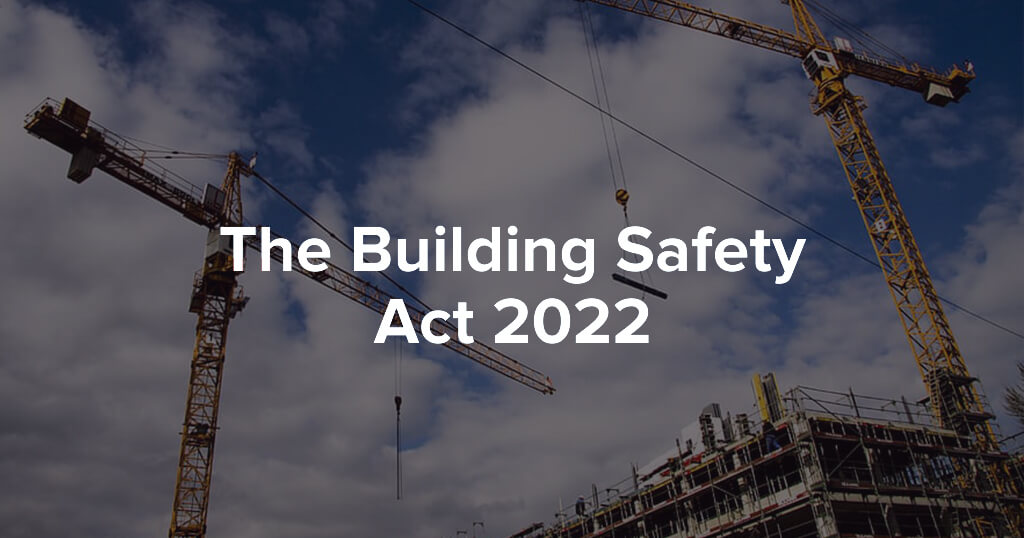The Building Safety Act 2022, which came into force on 28 April 2022, puts forward reforms to provide additional rights and powers to protect residents and homeowners. In addition to overhauling existing regulations, the act clarifies how residential buildings should be constructed, maintained, and made safe.[1] The following new bodies are created under this act: the Building Safety Regulator; the National Regulator of Construction Products; and the New Homes Ombudsman. This article will discuss responsibilities and mechanisms of the New Homes Ombudsman Scheme (NHOS), created under section 136 of the Act.[2]
The Building Safety Act 2002 provides a formal means of submitting a complaint or seeking redress, which was previously not available, for homebuyers who are faced with faulty building works in new-build properties. Creation of NHOS under the Act[3] aims to rectify the gaps in the previously existing new law and supplies the following:
- An avenue of redress for owners of newly constructed homes with defects when a developer has not satisfactorily addressed a complaint.
- A mechanism that allows referrals to be made up to two years after the project is finished (or in cases where the first complaint was made to the developer within two years after completion).
- A free service with a changeable annual registration charge that developers pay to offset the costs.
- An online platform for managing complaints
- Decisions that both parties must abide by
Through the NHOS, the quality of new-build homes across UK will be improved and it will provide homeowners an alternative dispute resolution service which is cost-effective as well as less time consuming. The scheme allows all relevant owners to escalate their complaints to a New Home Ombudsman. In case of a successful complaint, a developer may be required to provide one or more of the remedies under Schedule 9[4]:
- an apology
- an explanation
- compensation up to a proposed maximum of £75,000
- any other action (such as rectification) that the New Homes Ombudsman may specify
The New Homes Quality Board (NHQB)[5] is an independent non-profit organisation, responsible for the creation and management of the NHOS. The NHQB aims to provide an improved level of consumer protection for new home buyers as well as regulate the building industry under the new Act. Although the NHQB oversees the scheme, each case is reviewed independently by the NHOS under New Home Quality Code (the Code) standards set for newly built private homes.
New Homes Quality Code
The Code installs mandatory requirements which registered developers have to abide by and establishes practical steps which are to be followed at every step of the sale process.[6] This guarantees that every stage, from reservation to occupation (until the first two years), of purchasing a new-built home is covered. Some of the key elements of the code are avoidance of a high pressure selling, a cooling off period of fourteen days, and protected deposits. To make an informed decision regarding the purchase of the property, the buyers must be notified about all relevant information including service charges.
As developers have to ensure that they meet the principles of ‘treating customers fairly’, developers must put in place an effective ‘after-sale service’ to deal with incoming complaints and issues. In cases where the homeowner is displeased with the developers’ services, within two years of purchase, a referral can be made to the NHOS.[7] Although the NHOS is likely to reduce the claims made earlier on, it is still unclear how standards will be measure for structural warranty insurers as the policy needs to consider issues in new-build homes which usually do not manifest until after two years
Registration by Developers
At present, developers are not legally bound to registered with the NHOS, however, once the scheme is activated, developers will be expected to adhere to the requirements of the new Code and the remit of the NHOS, and all reservations taken from that point will be subject to the new arrangements.[8]
Once NHOS is live, developers will be required to become and remain members of the scheme through a secondary legislation laid by the Secretary of State. Under this, all developers are expected to be registered by the end of December 2022.[9] Along with making the scheme ‘official’, the secondary legislation will also set the enforcement framework and sanction for breaching requirements.
There have been numerous reports of major developers commencing registration procedure.[10] Once registration is complete, all reservations must adhere to the new Code’s specifications and the mandate given by NHOS.
In conclusion, developers of new-built properties will be required to be registered with the NHOS by the end of 2022. It is also likely that new home structural warranty insurers and lenders will also be required to abide by regulations put forth under the Building Safety Act. The Government has reserved the authority under the Building Safety Act to require companies building and selling new homes to participate in the scheme.
[1] ‘The Building Safety Act’ (GOV.UK, 2022) <https://www.gov.uk/guidance/the-building-safety-act> accessed 3 October 2022.
[2] Buildings Safety Act 2022.
[3] ibid.
[4] Buildings Safety Act 2022, Schedule 9, paragraph 9
[5] ‘Homepage’ (Nhqb.org.uk, 2022) <https://www.nhqb.org.uk/> accessed 3 October 2022.
[6] The New Homes Quality Code
[7] ibid.
[8] ‘Information For Developers’ (Developers.nhqb.org.uk, 2022) <https://developers.nhqb.org.uk/information-for-developers.html> accessed 6 October 2022.
[9] ibid.
[10] ‘How To Apply To Be A Registered Developer’ (Developers.nhqb.org.uk, 2022) <https://developers.nhqb.org.uk/developers.html> accessed 6 October 2022.
